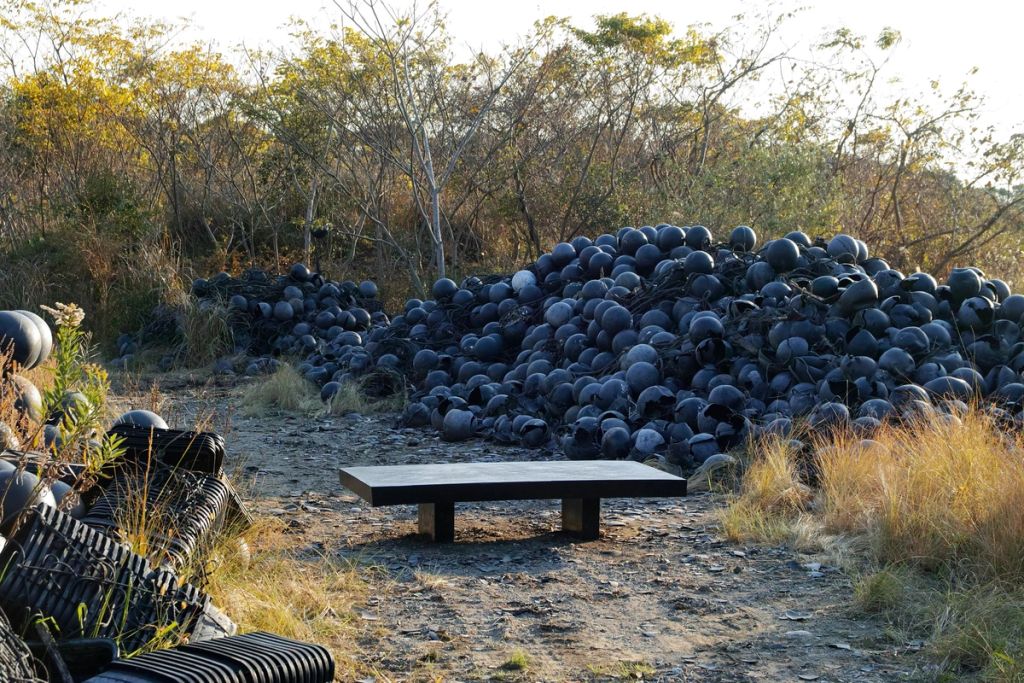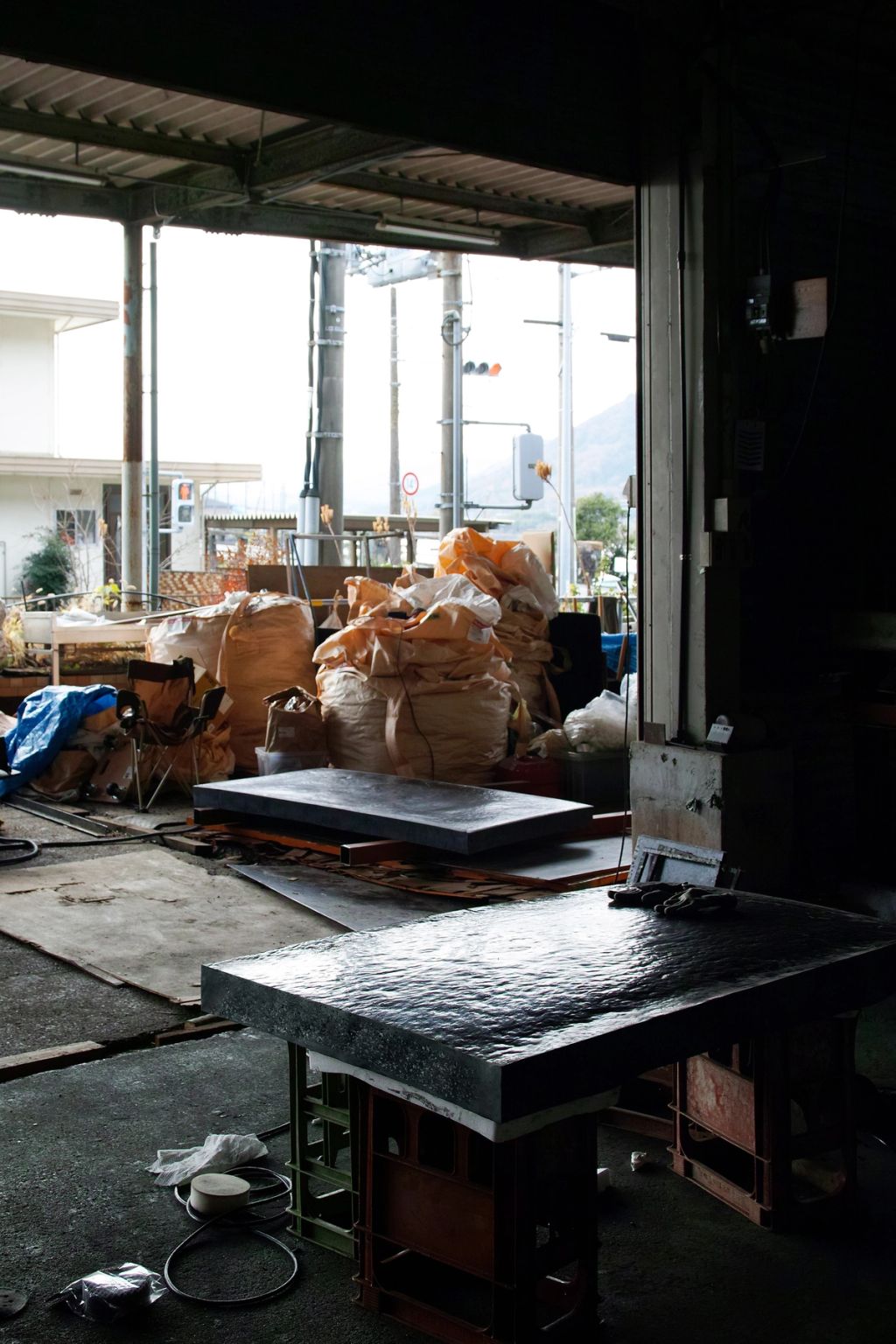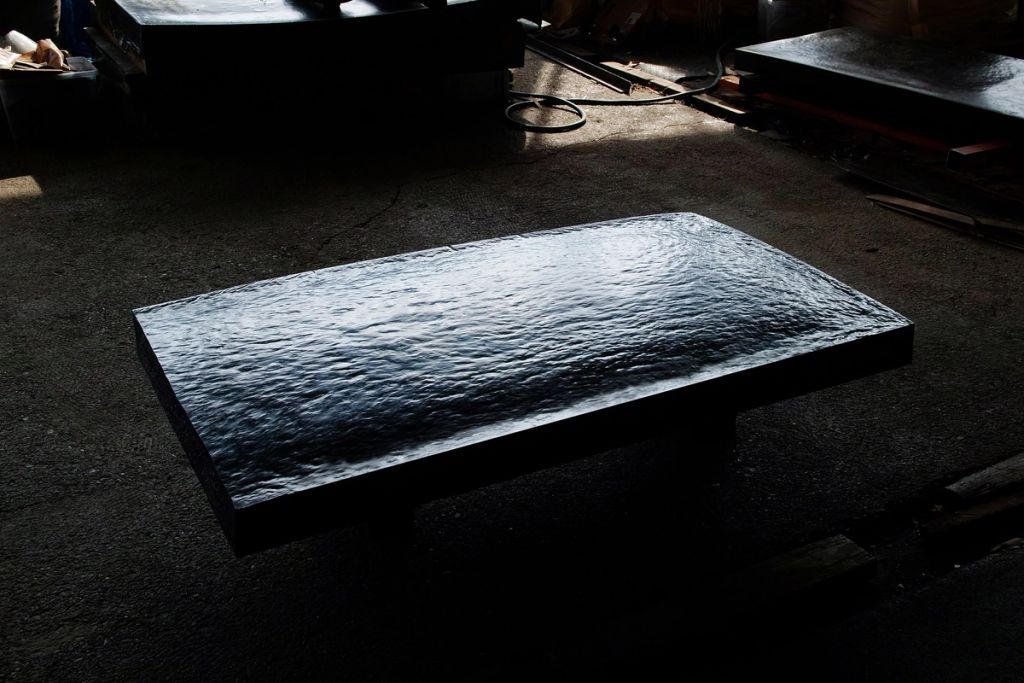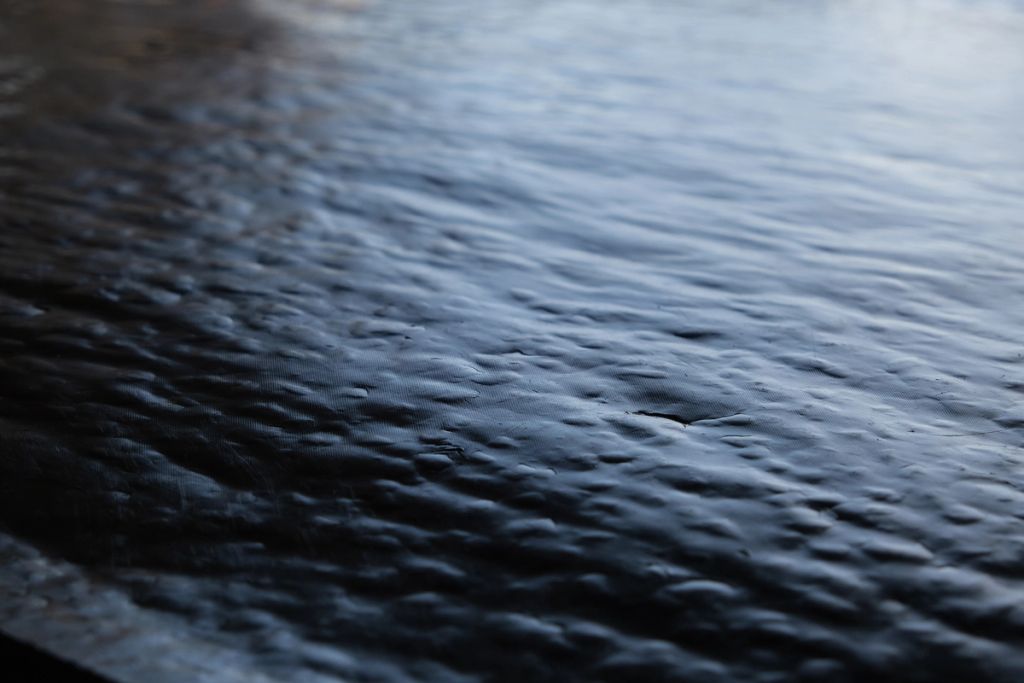mum

Date: December 2022 Location: Mie, JP Function: Product Design, Material Experiment Client: REMARE Manufacturer: REMARE
PAN- PROJECTS, in collaboration with REMARE, introduces mum, a product design project that upcycles discarded plastic fishing gear into a dining table. Focused on redefining ocean plastics as a valuable material, the project challenges the notion of waste by viewing it as a gift from the ocean rather than pollution. Working closely with local fishing communities, mum collects and processes abandoned nets, ropes, and buoys—materials often left to degrade in the sea. These materials are transformed into a dining table featuring a wave-like surface pattern inspired by the dynamic qualities of the ocean. The process embraces the natural imperfections of the materials where sea salt residue and weathering naturally create unique wave-like textures that honour their origins. mum seeks to bridge ecological responsibility with contemporary design, presenting a new perspective towards ocean waste and highlighting the potential of these materials to become part of a new sustainable nature.

- "New nature" and a gift from "mum" - The title "mum" derives from the traditional interpretation of Mother Nature in Japanese culture. Japan, surrounded by the vast expanse of the sea, has always embraced the ocean before the land, celebrating the gifts bestowed upon them by the Mother Sea. The people live their lives deriving their sustenance from the ocean. The Anthropocene has brought irreversible destruction to nature with scientists concluding it impossible to completely eliminate ocean plastics from the natural world. This fact supports the view that we are now living in a “new nature”, where ocean plastics are just another part of our natural environment. With this in mind, we questioned, "Can we see ocean plastics as another gift from our Mother Sea?" Imagine the near future, when our society has banned the production of plastics, where we will need to harvest plastics from the sea just like they harvest seafood. - Ocean plastic, fishery, by-products - Fishermen make a living by harvesting food from the ocean, but the plastic fishing gear they use often gets damaged by the marine environment. As a result, significant by-products of the industry include discarded buoys, nets, and ropes. PAN- PROJECTS believes that these by-products should also be seen as valuable resources from the sea. To shift the perception of ocean plastic from pollution to resource, the project aims to re-identify ocean plastics as one of the many products of the fishing industry. The concept of creating a dining table for feasting on seafood emerged as a way to connect the sea, the fishing industry, and their by-products. The table-top has a unique wave pattern that resembles the sea's fluctuating character, and the light reflected off it expresses the ever-changing texture of the sea. The pattern is naturally created through the recycling process caused by the dirt, sea salt, and weathered characteristics of ocean plastics. mum highlights the fluctuating, uncontrollable character of nature, where the unique patterns, created as a consequence of the material properties of ocean plastics, re-align the material with their “new natural” origin. The glossy black colour of mum reminds us of the calm waves of the dark Japanese sea, an elegant reminder of the material’s origin. Through the project, mum aims to raise awareness of the issues around the fishing industry while shifting our perception of ocean plastics as a “new natural” material; a gift from the sea.



